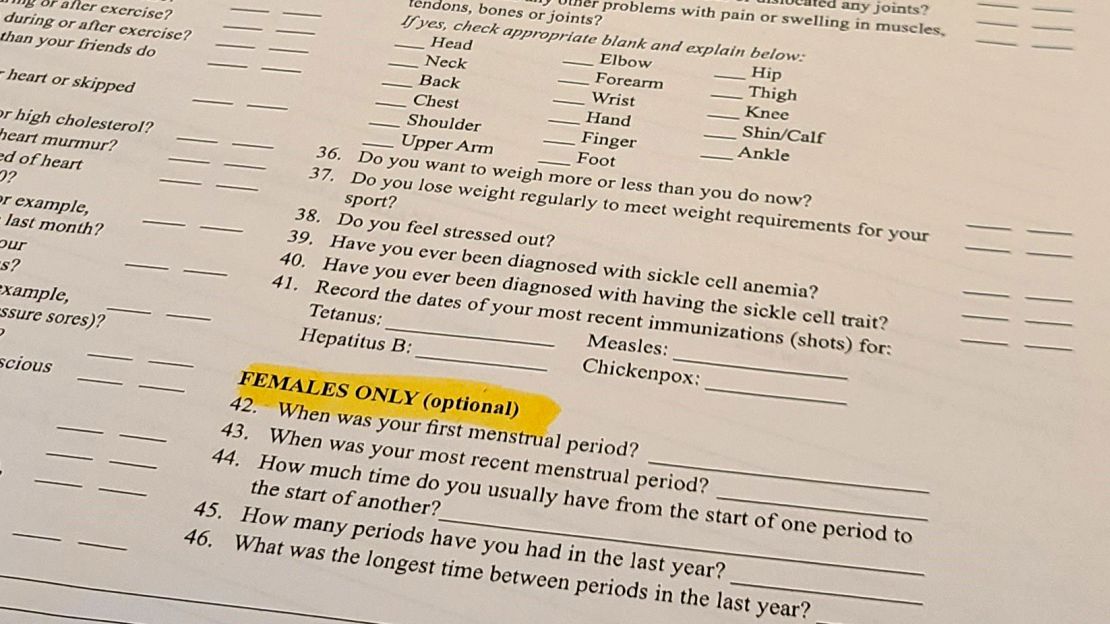At an emergency meeting Thursday, the Florida High School Athletic Association approved a proposal to remove all questions about menstrual cycles from medical forms required to participate in high school sports in the state.
The new form will go into effect for the 2023-2024 school year and will be available starting this spring. Currently, all questions on the form about menstruation are optional.
The emergency meeting was held after the FHSAA faced months of criticism for a proposed change in policy that would require athletes to report their menstruation history every year.
Under the new proposal approved Thursday, all questions about menstruation will be removed from the student forms. Such information may be kept private between a student, doctor and parents.
“The intent of this proposal is to provide an updated … form which protects a student-athletes’s privacy while including pertinent medical information a health care provider at a member school would need access to,” the agenda item says.
The meeting came after more than two dozen Florida lawmakers protested the proposed requirements in a letter to the FHSAA earlier this week.
“The rights of all girls in sports, including their right to privacy, must be respected as afforded in the State of Florida’s Constitution,” the legislators wrote.
The American Academy of Pediatrics (AAP) recommends that menstruation data be collected to help medical providers evaluate students. The information would be part of “standard elements important to consider in evaluating the patient’s eligibility to participate in sports,” the group said.
The AAP form has four suggested questions about menstruation as part of the physical evaluation, including “When was your most recent menstrual period?” and “How many periods have you had in the past 12 months?”
Information on menstruation may be necessary for a medical evaluation because an irregular menstrual cycle can be a sign of pregnancy, the American College of Obstetricians and Gynecologists says. Irregular cycles can also be a sign of lower estrogen levels that may contribute to bone loss, the organization says.
But the AAP says the full medical data should not be shared with schools or sports organizations.

More than 40 states require or request data about menstrual cycles from high school athletes, according to Outsports, the LGBTQ athletic website that conducted a “state-by-state examination of publicly available ‘preparticipation physical evaluation’ forms” to compile the data.
But the debate over privacy has become more pointed since the Supreme Court overturned Roe v. Wade and concerns rose that states could potentially use the information on menstrual cycles to prosecute women who seek or have abortions.
Florida has a 15-week abortion ban that does not allow exemptions for rape, incest or human trafficking. It also has laws restricting transgender athletes’ participation in high school and college athletics.
The FHSAA’s members include about 800 public and private schools. More than 800,000 student-athletes fall under its governance.
CNN’s Holly Yan contributed to this report.


